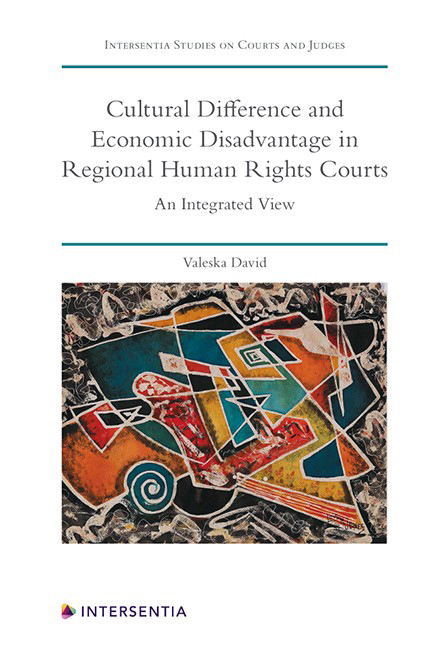Book contents
- Frontmatter
- Dedication
- Foreword
- Preface
- Acknowledgements
- Contents
- List of Cases
- Introduction
- PART I THEORETICAL FOUNDATIONS
- PART II RETHINKING CULTURAL DIFFERENCE FROM AN INTEGRATED PERSPECTIVE ON HUMAN RIGHTS
- PART III RETHINKING ECONOMIC DISADVANTAGE FROM AN INTEGRATED PERSPECTIVE ON HUMAN RIGHTS
- Conclusion
- Bibliography
- Index
- About the Author
- Frontmatter
- Dedication
- Foreword
- Preface
- Acknowledgements
- Contents
- List of Cases
- Introduction
- PART I THEORETICAL FOUNDATIONS
- PART II RETHINKING CULTURAL DIFFERENCE FROM AN INTEGRATED PERSPECTIVE ON HUMAN RIGHTS
- PART III RETHINKING ECONOMIC DISADVANTAGE FROM AN INTEGRATED PERSPECTIVE ON HUMAN RIGHTS
- Conclusion
- Bibliography
- Index
- About the Author
Summary
Given the complexities and concerns surrounding cases of cultural and economic disadvantage, it appears natural, so to say, to resort to the simplification offered by legal categories. Nevertheless, to differing degrees over-reliance on normative ‘boxes’ that bolster a unidimensional or fragmented analysis appears problematic for the handling of the cases studied and for similar future cases. In fact, approaching human rights norms and rights holders in a disaggregated fashion seems to exacerbate rather than alleviate the challenges identified in the Introduction and Chapter 1. However, the analysis conducted with regard to both the European and the Inter-American Courts of Human Rights also suggests that a degree of integration is already taking place and that moving further in this direction is both feasible and desirable. The trends, opportunities and challenges that have arisen along the way are discussed in this last chapter.
UNDERSTANDING COMMONALITIES AND DIVERGENCES BETWEEN THE REGIONAL COURTS
COMMONALITIES
The discussion in Part II (cultural difference) reveals that in a significant number of cases both courts adopt a normative approach centred on group ethno-cultural identity. This focus appears justified in several respects. Among these are the legal argumentation of the parties and the need to define who the applicant is in order to identify the set of rights and restrictions that are accordingly applicable. However, the culturally based legal framework also ends up mobilising a narrow set of legal arguments. Importantly, at times it overshadows the real-life experience of rights holders and a wider range of relevant harms and norms. This is particularly so in cases concerning a Roma way of life, the Islamic headscarf and indigenous/tribal culture. Thus, while the approach taken by the regional courts in these cases varies considerably, they share some interesting features.
One is that both courts undertake an appraisal of the value and meanings of those identities and cultures. In doing so, they essentialise them. They also, in different ways, overlook the circumstances of concrete individual applicants as well as those of other rights holders who are either similarly or diff erently situated vis-à-vis the applicants. Additionally, these judgments and decisions oft en address cultural harms and restrictions of civil and political rights, while making the socio-economic stakes of the cases more or less invisible. This is more acute in the case of the European Court than in the Inter-American Court.
- Type
- Chapter
- Information
- Cultural Difference and Economic Disadvantage in Regional Human Rights CourtsAn Integrated View, pp. 367 - 382Publisher: IntersentiaPrint publication year: 2020



